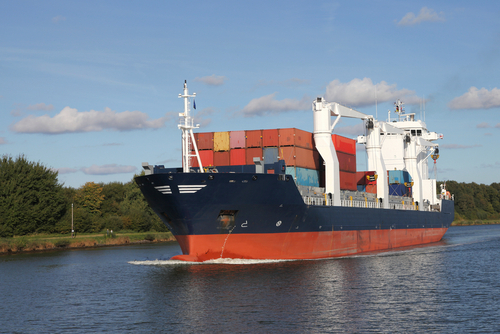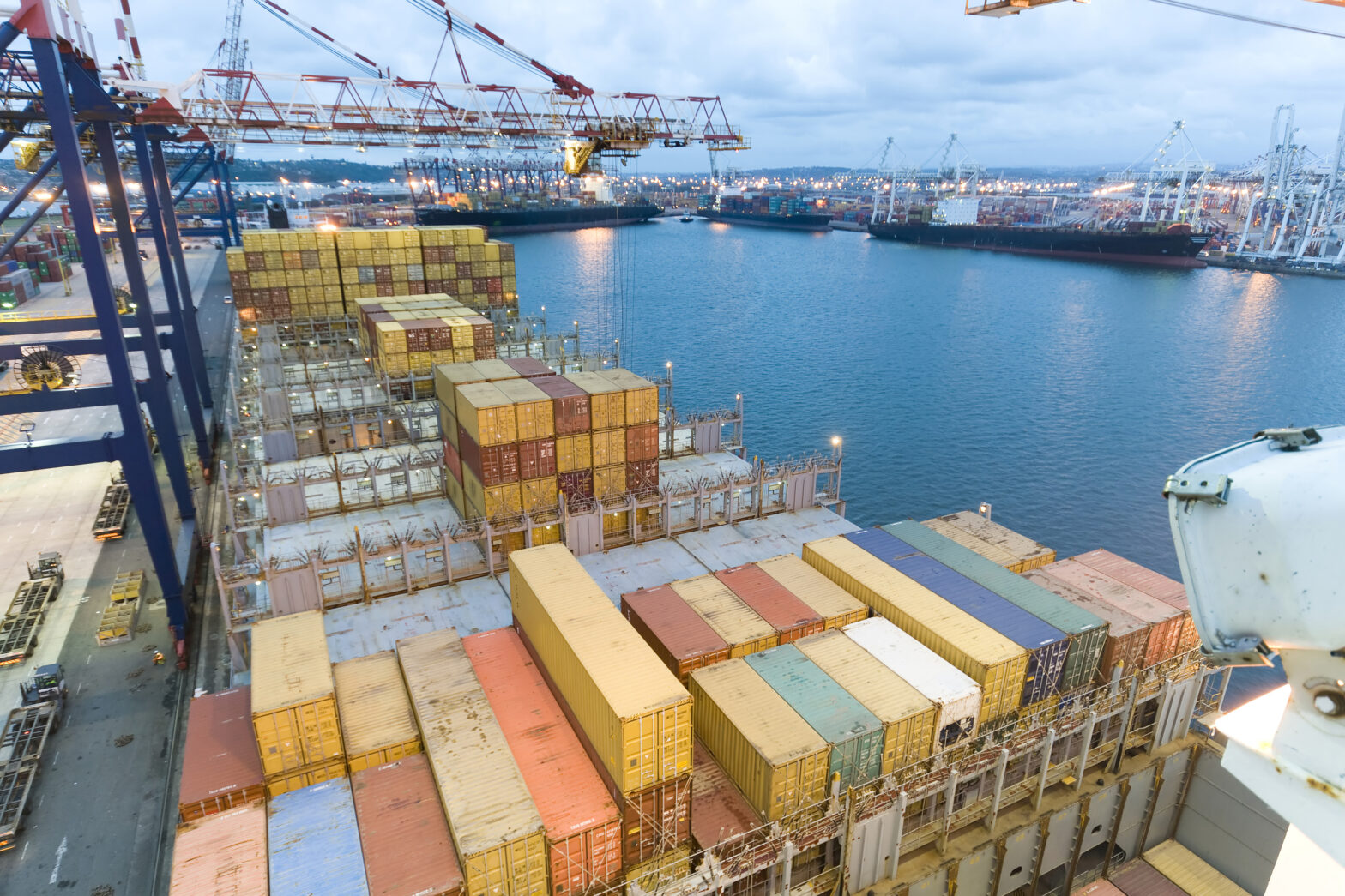With industry experts claiming that exporting goods abroad makes small businesses more competitive, innovative and productive, winning trade overseas is a key way for companies to kickstart growth and prosper in the marketplace.
But how can small businesses crack international markets? Given the various demands companies need to satisfy to ship their products abroad, expanding can often be a complex and time-consuming process.
For business owners in pursuit of global opportunities, research into the key principles and legislation of exporting is vital in getting a firm grasp of the current marketplace and the scope for expansion. This guide looks at the dos and don’ts for trading overseas and offers practical insight for small businesses preparing to ship their products abroad.
Export changes after Brexit
From January 1 2022, exports between Great Britain and the EU are subject to full EU custom controls.
This means that traders must submit declarations on all goods that they export and that everything must be presented to customs. The declarations must be entered into HMRC systems to check if any further checks are required. Note that you can check if you can pay a reduced amount of duty or delay customs and declarations.
Generally speaking, you’ll need an EORI number and, as it’s such a lengthy process, it’s wise to find someone who can do your export declarations. On top of that, a customs representative can help you avoid additional customs duties and stop you from falling into fraudulent activity.
>See also: EORI number: What it is and how to get or check one
Remember that you’ve got to be able preserve certain records so that you can present them to HMRC upon request. If you’re VAT registered you must keep records and accounts and you must declare any goods that you move and keep records. You’re required to keep records for all traded goods for four years.
There’s loads of valuable guidance on the government website around exports and customs for business.
If you’re exporting to Northern Ireland, register for the Trader Support Service which will help you navigate changes in the Northern Ireland Protocol.
Before you decide to export anywhere, make sure you’ve considered the following:
- Companies that have a good track record for exporting are already successful in the UK. Think carefully about exporting unless your company is enjoying increasing sales at home.
- Conduct research into whether your competitors in the UK are already exporting, as well as who your local competitors would be in new markets.
- Assess whether your exporting objectives clear and measurable.
- Investigate whether the demand for your product exists abroad.
- Evaluate if your company has the financial resources for additional market development and additional human resource to satisfy an increase in product demand.
- Consider the standard practices in the countries you are exporting to and the current marketplace – getting local knowledge will be invaluable when you come to launching your products internationally.
- Consider if you’ll need to visit the country you’re exporting to and how often.
- Make sure you understand the cultures and customs of the country you want to export to.
The risks involved in exporting
Exporting products abroad also poses financial, product and operational risks. Doing some simple research into the standard practices of the countries you are exporting to and making necessary precautions will ensure you can export your goods safely and hassle-free.
Here are the key issues to consider:
Protect your business from late (or no) payment. Insure against non-payment of export invoices. Alternatively, if you are concerned about your customers’ ability to pay, try and negotiate payment upfront or set up payment in stages.
For expert advice minimising financial risk, head to UK Export Finance.
- Fluctuating exchange rates. Your company’s profit margins can be impacted by dips in currency rates. Avoid this by matching the income you receive in a currency by your expenditure in that currency. It’s also common amongst UK exporters to borrow money in the country to which you are exporting, especially in the Eurozone where interest rates are lower.
- Consider opening a multi-currency account. There are ways to manage multiple currencies and receive international payments without overpaying on fees. Fintech companies are helping businesses save money when they buy and sell products abroad with their multi-currency accounts.
- Make sure your product is compliant. Check your product specifications against the regulations and standards of the country you are exporting to.
- Be vigilant about product quality. Some companies have to transfer manufacturing process overseas to meet a country’s regulations and standards. If you do this, stay close to the production process to ensure the standards don’t suffer.
- Check if you need a licence. If you are exporting machine tools, electronic equipment, computers, telecommunication equipment and related components you’ll need a licence. Contact the Export Control Organisation for more information.
- Make sure you’re covered. Although there is no legal obligation to do so, it’s best to insure your goods. Marine insurance is the general term used for cover against damage and loss for goods while in transit – whether by road, rail or air freight. To protect yourself against credit risk, you should also insure your company against the commercial and political risks of not being paid under an export contract. You can read more about export insurance policies here.
Should I use a distributor?
You have the option of selling directly or using a distributor who can introduce your products or services in a different territory. A distributor (sometimes known as a dealer or a reseller) purchases goods from an exporter and has a ‘title’ of the goods purchased. The distributor then sells on the goods onto the final customers having added their profit to the price.
If you do decide on a distributor, the government advise that you to select the distributors rather than the other way around. Carry out an assessment before you commit to anything. The assessment should include their experience within your sector and what their reputation is like – try and talk to one of their existing suppliers if you can. Make sure you write up an agreement so that each party is clear on the other’s responsibilities. You might want to consider how your values align as businesses.
To find distributors, ask trade associations and other suppliers working within your sector. Once agreed, find out how your agent prefers to be contacted and keep in contact regularly.
Government support
Good news for companies expanding abroad – the UK government is urging businesses to pursue overseas trade opportunities and the Department for Business & Trade has a number of programmes to help with exporting goods. You can find all the details in its great.gov.uk website here.
It offers export support for Uk businesses, where you can compare international markets, create your export action plan and join the UK Export Academy for free training.
Practical advice
- Speak to SMEs at a trade show. there are regular trade shows and events which give you the opportunity to speak to a UK Trade & Investment expert, join seminars and practical workshops and speak attract prospective customers. The UK Tradeshow Programme provides grant support for eligible SME firms to attend trade shows overseas. The Chamber Network runs hundreds of international trade events throughout the year. For full listings, you should check your local Chamber’s website.
- Help with trade documentation. The British Chambers of Commerce offers helpful guidance and training courses on paperwork for the movement of goods.
- Speak to a freight forwarder. Freight forwarders offer helpful advice and support with documentation as well as quotes for moving goods abroad. Increasingly freight forwarders offer digital platforms that are easy to use and enable SMEs to get rate quotes quickly, and book, pay and track ocean and air shipments around the world.
Case study 1: Robinson of England

Here, David Robinson, founder of furniture company Robinson of England, discusses how his business started and its journey into exporting.
We specialise in the restoration and craftsmanship of the finest furniture. Our signature item is the quintessentially British Chesterfield sofa and chairs. We offer six bespoke crafting options, at varied price points, for each of the unique designs in our signature collection. Our emphasis on the importance of British craftsmanship and design has secured our business as one of the supreme manufacturers of bespoke furniture in the UK. Prioritising quality has regretfully become a rare concept in the world of furniture, but we remain passionate about the manufacturing process and continue to craft our furniture to the highest level– this passion has served us well.
Before Robinson of England was launched, I was working for a corporate investment firm to support another business venture I was pursuing – creating a lady’s fashion house. In 2002, aged 23, I began selling second-hand Chesterfield sofas on the side – I fell into the industry purely by chance, but fell in love with the industry immediately!
Falling into furniture
The idea came by chance; however, I began selling furniture after my mother acquired a modern Chesterfield suite, which didn’t quite suit her needs. I sold it to a pub, via a well-known auction site, and this is where my journey began. In the early days, I also dealt extensively in cars and motorcycles, while pursuing the fashion-house business, and then I added second-hand Chesterfields into the mix – it all grew from there.
The company’s revenue has been a rollercoaster ride over the years, having approached sales in a host of different ways. I have been down the route of stand-alone showrooms; and concessions in high-end department stores. While this created very good revenue, it was not necessarily the best option for business growth and development.
“One of my earliest export pieces was a 19th century Chesterfield sofa that was exported to the USA for use in Harvard University”
Currently, Robinson of England operates online only. Although, we still encourage clients to visit the workshop for a behind-the-scenes look at our unique methods of craftsmanship. I think operating online is the most suitable platform for our business needs as it frees up enough time for me to focus on larger client projects. For example, we have worked with some very high profile interior designers as well as large organisations, such as the Bank of England. Most of my time is spent building and retaining those important relationships.
Our current revenues are around £500,000 and for me, the most important thing is maintaining efficiencies.
The road to exports
I began exporting very early on in my career, so for me, the process is now relatively simple. In fact, one of my earliest export pieces was a 19th century Chesterfield sofa that was exported to the USA for use in Harvard University.
Despite my confidence in exporting, there are still obstacles. For example, we have had issues ranging from our goods being disembarked from ships to goods being held in airports, due to closures. We often face problems with goods being held in quarantine, documentation inconsistencies and customs regulations – you name it! The list of problems you can face when exporting is endless, however, if you have a good freight partner, you should be able to work around any situation.
How much of your business does export trade account for?
Export sales are a very important part of our business operations, in fact, in June 2018, 50 per cent of our sales are generated from overseas custom – everywhere from Brazil, to Switzerland! We do advertise in several overseas locations, as well as the UK, to support this revenue. We have our eyes firmly on expanding on this, we intend to explore more foreign markets and aim to support this custom by launching our website in different language.
The key things are to be knowledgeable about the rules and regulations of the different markets, to find a reliable freight partner, and to deal in a way that best suits yours and your businesses requirements.
Case study 2: Oxcloth

A focus on international sales right from the beginning can set a company up for export success. Sean Hammon, founder of clothing brand Oxcloth, discusses how this happened for his business.
Oxcloth is a premium clothing brand that specifically caters to muscular and athletic men who struggle to find high quality, well-fitted clothes. I launched the company in November 2016 with ten styles of shirts and four chinos. Previous to this, I was working for my family’s international nail and beauty company, working in the warehouse and taking sales calls. After facing some trouble with our current suppliers, I was presented with the task of starting up a manufacturing company to produce and supply the core product sold by the family business. The manufacturing company I started was going well, and within the next four years the new business had become well established, turning over £500,000 annually and produced private labelling to the industry’s top brands.
Once the new company was established, I felt it was time to take the next step in my career and start my own company in an industry I was very passionate about: bodybuilding. Since the age of fourteen I was a gym enthusiast, and while I was not the biggest guy in the gym, even I struggled to find shirts and trousers that fitted me properly. This lead to the concept of Oxcloth.
“I wanted Oxcloth to be recognised globally so international sales were going to be vital”
Knowing I couldn’t be the only one with these struggles, I began my market research and was surprised to see there were very few brands out there who offered true muscle fit clothing; having identified a gap in the market, this gave me the idea to become one of the first.
The company has turned over more than £95,000 since the launch and now supplies over 30 styles of shirts, chinos and jeans. Due to the size and growth of the fitness industry, I don’t see any foreseeable limits on potential turnover.
I was fortunate enough to be able to invest £30,000 of my own money that I had saved from dividends earned from my shares in the manufacturing business to start Oxcloth. The challenges of this came from having the discipline to save, knowing there was a possibility that I was about to invest my life savings into a business that could ultimately fail.
An export focus from the outset
The business really started exporting from the beginning; I wanted Oxcloth to be recognised globally so international sales were going to be vital. With such a unique business concept I felt it was important for us to become the brand for a market that we are essentially creating for ‘true muscle-fit’ clothing.
My online marketing strategy involved looking at the spending habits of our existing customers in different countries, to understand what advertising they responded to and what products were of most interest to them in order to identify sales opportunities overseas. It became noticeable that spending habits varied from country to country; in the US, for example, consumers seem to buy from retailers they can trust, and so it was important for me to ensure the brand was reputable. By reaching out to leading influencers in these regions, sales increased the more the brand was recognised. In Australia, however, we found a 5 per cent increase in conversions when a discount was offered. Identifying these opportunities helped to grow the brand overseas and increase our exporting.
Bodybuilding and the fitness industry has a larger audience overseas (the US, for example, has the largest number of professional bodybuilders) so I began to target these areas more closely, as well as branching out to neighbouring countries. The increase in sales and interaction helped to improve the profile of Oxcloth as an established, trusted retailer which in turn led to an increase in domestic sales here in the UK.
In the first month we launched, 32.5 per cent of total orders received were exported to five international countries. In sixth months, this had grown to 46.7 per cent, exporting to ten countries. After 19 months of trading, Oxcloth exported 49 per cent of total sales to 20 international countries. Now, we’re exporting to over 60 countries.
Social media boosting exports
The biggest attribution to our growth in exporting would be successful social media marketing campaigns. We understand our customer base and creatively narrow down our demographic and find these potential customers abroad through influencers and ads, coupled with a high-quality product and word of mouth, the growth has come naturally.
As an online retailer, the biggest challenge in the export market is the high cost of postage and returns. The best way we have learnt to deal with this is through excellent customer service and a unique sizing tool on our website that enables our customers to be sure of their size before purchasing.
“If you have the margins, target international customers; there is a big market out there”
For an online retailer, exporting isn’t as hard as you may think it is. Websites are open 24 hours a day, meaning your customers on any time zone can shop around the clock. Make sure your website is user friendly; having an automatic currency converter coded into your website will encourage customers to explore your products and make a purchase. Modern postage is also relatively inexpensive with fast delivery times meaning you can post products overseas from as little as £10 more per parcel than domestic rates. Ensure you have a clear returns policy for international customers, however; if you go for a 14 day returns policy, for example, this may not be practical if selling overseas, so be ready to adapt your policies for customers abroad.
Take caution, however, and expect to take a small hit in your profit margins if you offer free delivery or returns for all your sales, no matter where they come from. This is something that I felt was almost impossible not to offer when I launched Oxcloth, with competitors from all around offering competitive prices and promotions. If you have the margins, target international customers overseas; there is a big market out there and in order for your company to grow and expand, it is important to use modern day technology and resources to reach potential customers abroad. The positives of establishing yourself as an international brand, however, far outweigh this; expansion of your brand can only come from expansion into the wider world and exporting is fundamental to this. Be sure to stay on top of your paperwork! Keep your proof of export and stay organised – there is no reason why you can’t do it.





